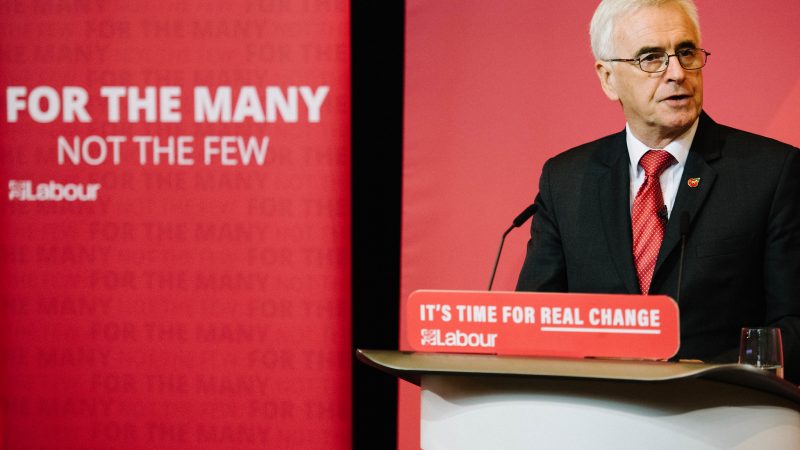
Former Shadow Chancellor John McDonnell is set to bring forward a new bill in the House of Commons next week that will aim to block coronavirus financial support from the government going to “appalling employers”.
In his first intervention in the UK parliament since stepping down from the shadow cabinet when Keir Starmer was elected Labour leader, McDonnell plans to propose a ‘ten minute rule bill’ on business standards during the pandemic.
Under the scheme being presented by McDonnell on Wednesday, employers would be denied Covid aid if they use ‘fire and rehire’ tactics, which Starmer recently said should be outlawed, use zero-hour contracts, avoid tax or pollute the environment.
Scottish Labour leader Richard Leonard is set to give the UK bill a boost by declaring his support for the “serious and credible” proposed legislation – reserved to Westminster – in a motion at the Scottish parliament.
McDonnell said: “Billions of pounds of taxpayers’ money is being paid to companies to help them get through the pandemic, so it is not much to ask that these companies abide by very basic good business practices of treating their employees decently, not harming our environment and paying their fair share in taxes.”
In his bid to prevent the government from “shelling out large sums of public money to subsidise poor business practice”, an accreditation scheme would be set up for firms able to meet decent standards.
The scheme would be overseen by a ‘Good Business’ commission, comprising representatives of business, trade unions, environmental groups and tax justice campaigners, which would have the power to impose tough sanctions.
On the detail of his bill, McDonnell added: “Conditions should be attached to government funding support both linked to the pandemic relief schemes but also to longer term benefits like tax relief and listing on the stock exchange.”
The Labour MP for Hayes and Harlington, who served as Shadow Chancellor under Jeremy Corbyn, wants the government to “seize this opportunity to transform our business environment and stamp out bad business behaviour”.
Giving his backing to the proposals, Scottish Labour’s Leonard said: “For too long some big firms with the broadest shoulders and the deepest pockets have been allowed to exploit the taxpayer and their workers.
“They have used loopholes to avoid paying their fair share of taxes while paying their workers poverty wages, and at the same time drawing on public money. In the past decade, inequality in this country has rocketed. The rich are getting richer while the poor are getting poorer.
“While this legislation is reserved to Westminster, as Scottish Labour leader I will not stand by and allow these practices to continue. The ‘business standards’ bill includes serious and credible proposals to effectively tackle tax avoidance head on, as well as fundamentally transforming the workplace and business environment for the better.”
Tech giants such as Amazon, Google and Apple would face sanctions, under McDonnell’s plan, for practices including the use of profit-shifting arrangements that allow them to pay tax in countries with lower rates.
Companies would only be eligible for state aid, tax reliefs and to be listed on the stock exchange if they adhere to good employment practices – from recognising trade unions and paying the real living wage to promoting gender pay parity and shunning zero-hour contracts.
Environmental considerations would also be taken into account by the government, with firms being rewarded for adopting a strategy for achieving net-zero emissions within a decade to help meet the UK’s decarbonisation target.
As well as looking at tax avoidance schemes, the legislation would see the state consider whether firms include worker representatives on their boards and implement a pay ratio between the highest and average pay.
Ten minute rule bills allow backbench MPs to make their case for new legislation in a speech lasting up to ten minutes in the House of Commons, which then decides whether or not the proposals should be introduced to parliament.




More from LabourList
Nudification apps facilitate digital sexual assault – and they should be banned
Diane Abbott suspended from Labour after defending racism comments
Labour campaign groups join forces to call for reinstatement of MPs